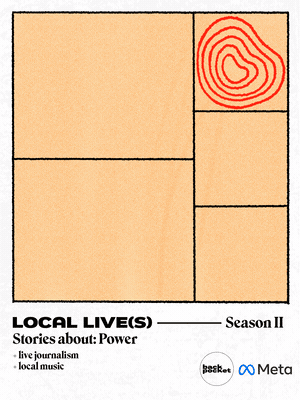On February 17, 2022, Brown Institute Entrepreneur-in-Residence Steve Henn hosted a conversation with Susan Stamberg and Bill Siemering on the founding of NPR and lessons for the future of public
CategoryNews
Entrepreneurship Resources for the Upcoming Innovation Challenge
Interested in applying to the Brown Institute Innovation Challenge in Journalism, Media, and Technology? We have a variety of resources to get you ready for the competition. If you have
Announcing ‘Points Unknown 2022’ at Columbia
News unfolds in places and every newsworthy event is shaped by the details of location. Those details might include the specifics of a neighborhood as it is today or of
The Brown Institute Announces its 2022-2023 Magic Grant Competition!
[Proposals are due April 8, 2022! Apply here https://brown.columbia.edu/propose/] The David and Helen Gurley Brown Institute for Media Innovation, a joint effort between Stanford’s School of Engineering and Columbia Journalism School, is celebrating its 10th anniversary. Each year, the Brown Institute awards close to $1M in grants to help you “follow your passion and experiment with new approaches to storytelling,” to paraphrase Helen Gurley Brown.
Introducing the Brown Institute Innovation Challenge in Journalism, Media, and Technology
Announcing Brown’s Innovation Challenge @Columbia! [Register for the PITCH PRACTICE SESSION, February 17 12:30-2:00 pm EST] [Applications are due February 25] We are pleased to announce a competition for Columbia
Join the Brown Institute for a conversation with Bill Siemering and Susan Stamberg
Anger + Hope: The founding of NPR and lessons for the future of public media. VIRTUAL EVENT Thursday, February 17, 2022 at 4pm Pacific/7pm Eastern RSVP here Bill Siemering is
Calls for Participation
The projects we support often need help from either the tech or journalism communities, gathering opinions or testing out new tools. Below we have two projects needing assistance and evaluation:
Announcing Season 2 of Local Live(s)
Fred Thys stood on stage and played an audio clip. It was a recording of a man that had been college roommates with a soldier recently killed in active duty.
Open Call: Counter Histories
What could an archive of the future look like? What creative possibilities are offered by the gaps, absences, and silences in archives and historical records? How can artists engage with









